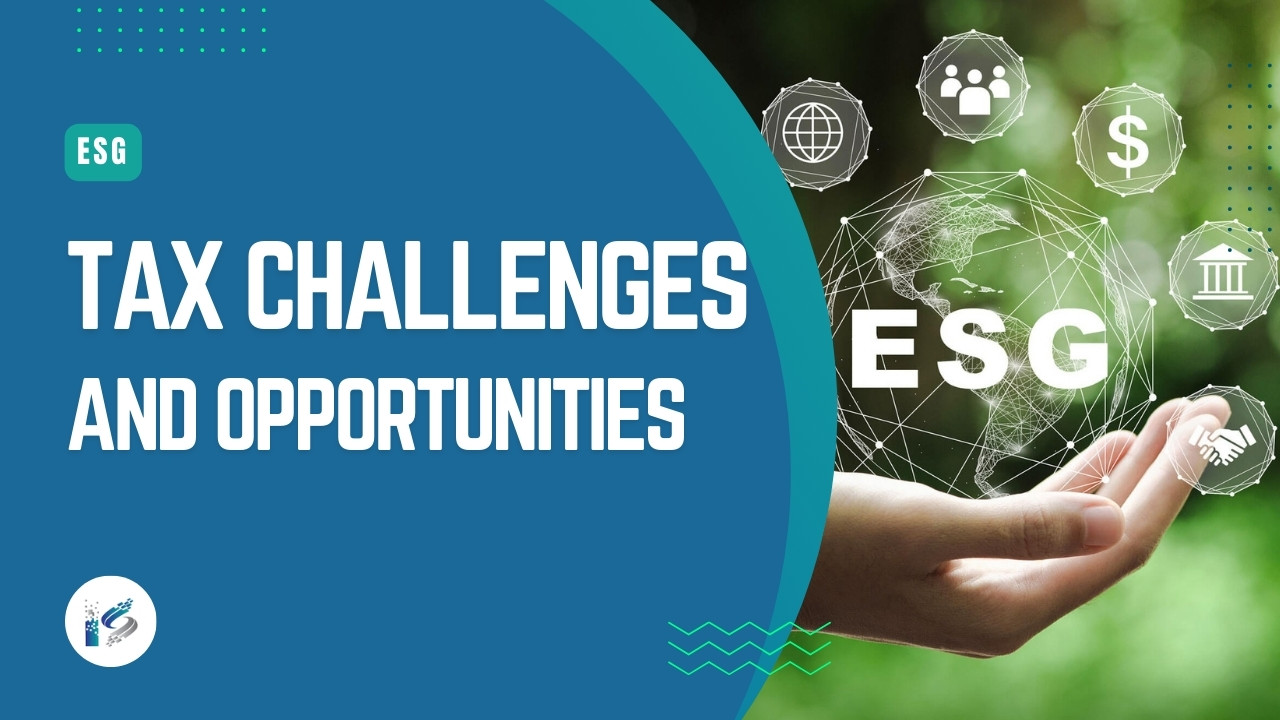As environmental, social, and governance (ESG) factors continue to gain prominence in the business world, companies are facing new challenges and opportunities related to taxation.
ESG considerations have implications for tax planning, reporting, and compliance, requiring businesses to navigate a complex landscape. In this article, we will explore the tax challenges that arise from ESG integration and identify the potential opportunities for companies to align their tax strategies with sustainable practices.
1. Tax Reporting and Transparency
One of the key challenges in the intersection of ESG and taxation is ensuring tax reporting and transparency. As stakeholders demand greater transparency and accountability, companies are expected to disclose their tax practices and contributions to society. This includes reporting on tax payments, tax planning strategies, and the alignment of tax practices with sustainable objectives. Adhering to ESG principles can enhance a company’s reputation and mitigate reputational risks associated with aggressive tax planning.
2. Tax Incentives for ESG Initiatives
Governments worldwide are recognizing the importance of ESG and sustainability and are introducing tax incentives to encourage businesses to adopt responsible practices. These incentives can take the form of tax credits, deductions, or exemptions for investments in renewable energy, energy-efficient technologies, or other sustainable initiatives. By leveraging these incentives, companies can reduce their tax burden while promoting positive ESG outcomes.
3. Risks of Tax Policy Changes
ESG considerations can also give rise to risks associated with changing tax policies. Governments may introduce new regulations or modify existing tax laws to incentivize or penalize specific ESG behaviors. Companies need to stay informed about evolving tax policies to anticipate potential impacts on their operations and financials. By proactively monitoring and adapting to these changes, businesses can effectively manage tax-related risks and seize opportunities that arise.
4. Transfer Pricing and ESG Factors
Transfer pricing, which determines the pricing of transactions between related entities within a multinational company, is another area where ESG factors come into play. As ESG becomes integral to business operations, companies must consider how transfer pricing aligns with their sustainability goals. Ensuring that intercompany transactions reflect the value created by ESG initiatives can help businesses demonstrate their commitment to responsible practices and avoid potential transfer pricing disputes.
5. Green Taxation and Carbon Pricing
Green taxation and carbon pricing mechanisms are emerging as powerful tools to incentivize low-carbon practices and reduce greenhouse gas emissions. These measures impose taxes or levies on activities that have a negative environmental impact, encouraging businesses to adopt cleaner technologies and processes. Companies that proactively incorporate green taxation and carbon pricing into their strategies can not only reduce their environmental footprint but also optimize their tax position and improve their competitiveness in a greener economy.
Need help on maintaining Azure Security Center Secure Score of Clients?
Our experts can help you on all kinds of works on Azure Security Center.
Conclusion
The integration of ESG considerations into taxation presents both challenges and opportunities for businesses. By ensuring tax reporting and transparency, leveraging tax incentives for ESG initiatives, managing tax policy risks, aligning transfer pricing with sustainability goals, and embracing green taxation and carbon pricing, companies can navigate the ESG tax landscape effectively. By doing so, they can enhance their sustainability performance, reputation, and long-term value while contributing to a more sustainable future.








